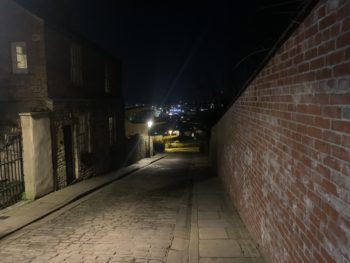At this time of year, it is common for people to suffer with mental health – the merriment and partying of the Christmas and New Year period has ended, and the dreary conditions with noticeably shorter daylight hours can have a marked effect on a person’s mood and mental condition.

Photo: Tori Wood
Mental health includes three main factors: a person’s emotional, psychological, and social well-being, and it affects every person of every age – it is not limited to a single category or age group.
The factors themselves are affected by many different influences, including stress, hormones, genetics, current and past experiences, addiction, and even an excess of substances including alcohol.
A person’s mental health is not fixed – it functions on a continuum that moves from the positive to the negative, depending on influences experienced at any given time. This means that periods of sleeping well, eating healthily, and exercising regularly can all improve mental health, while periods of binge-drinking, stress in education or work and relationship issues can move mental health the other way, towards the negative end of the continuum.
Two conditions that are commonly experienced and can adversely affect mental health at this time of year are Depression and SAD (Seasonal Adjustment Disorder or Seasonal Affective Disorder).
Depression, put simply, is feeling sad persistently, for a prolonged period, and affects people in diverse ways, with symptoms ranging widely from mild to severe, including associated negative effects. Anxiety, for instance, can be a by-product of Depression.
For more information on Depression, see the NHS site.
Depression is also known as the Black Dog, and this video depicts it perfectly.
If you feel that you may be suffering from Depression, it is vitally important that you seek help, from your GP in the first instance. There are numerous sources of support available.
People with SAD often display similar symptoms to Depression, and the condition, as the name suggests, can affect sufferers at any time of the year, not just winter. For winter sufferers, SAD can disappear once the nights shorten, and conditions improve, but if you feel you need support or advice, seek help, from your GP in the first instance. Again, there are various sources of support available.
What can you do to help combat Depression and SAD? There are various self-help strategies you can use to help with these conditions, including but not restricted to:
- Healthy eating – a healthy balanced diet, drinking lots of water and limiting/avoiding high caffeine/sugary/alcoholic drinks
- Activity – 30 minutes exercise 5 days a week – walking counts
- Interests – creative pursuits such as painting or writing; reading, hobbies, interests and activities, help to focus on the enjoyable and distract the mind from depression. Plus, they’re fun!
- Talking to someone – there is plenty of help and support out there – just ask!
This is a downloadable list of contact details and numbers if you feel that you need help with your mental health or life situation.
And remember; you are not alone – help is out there.

